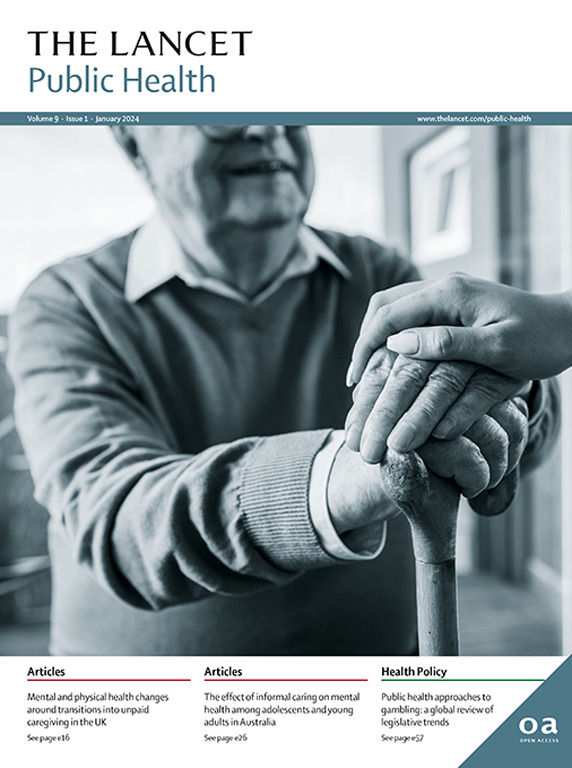Cancer screening participation and outcomes among people with an intellectual disability in the Netherlands: a cross-sectional population-based study
IF 25.4
1区 医学
Q1 PUBLIC, ENVIRONMENTAL & OCCUPATIONAL HEALTH
引用次数: 0
Abstract
Background
People with an intellectual disability face diverse health disparities, including challenges accessing cancer care. In the Netherlands, as in many other countries, there are national screening programmes for early detection of breast, cervical, and colon cancer. These programmes were, however, initially introduced for the general population, and they often fail to meet the needs of the population with intellectual disability. This study aimed to assess participation rates and screening outcomes of these screening programmes for the population with intellectual disability compared with the general population.Methods
In this cross-sectional population-based study, we identified adults (age >18 years) with intellectual disability and matched them at a 1:4 ratio to individuals from the general population from Jan 1, 2015, to Dec 31, 2021, in the Netherlands. National long-term care and supportive databases were used to identify people with an intellectual disability, which were matched to the database for the national cancer screening programmes based on age and gender. The primary outcome was to assess the participation rates for the national breast cancer, cervical cancer, and colon cancer screening programmes. We also assessed whether the screening outcomes were favourable or not in the group with intellectual disability compared with the general population.Findings
We identified 187 149 people with intellectual disability and 760 907 individuals from the general population, of whom 100 204 individuals with intellectual disability and 480 103 individuals from the general population were invited at least once for cancer screening during follow-up. Individuals with intellectual disability, compared with the general population, have significantly lower participation rates for cervical cancer screening (45·2% vs 68·1%; adjusted odds ratio 0·38 [95% CI 0·38–0·39], p<0·0001), breast cancer screening (55·5% vs 76·0%; 0·40 [0·39–0·41], p<0·0001), and colon cancer screening (51·7% vs 72·7%; 0.40 [0·41–0·42], p<0·0001). Although cancer screening outcomes are similar for people in both cohorts, the prevalence of invalid (insufficient sample) outcomes was higher among people with intellectual disability than the general population for breast cancer screening (0·9% vs <0·1%, 41·90 [30·35–57·92], p<0·0001) and cervical cancer screening (0·2% vs <0·1%, 5·43 [3·59–8·19], p<0·0001). Additionally, unreliable screening outcomes for colon cancer were more frequent in the population with intellectual disability than the general population (unreliable favourable outcomes 4·90 [4·55–5·83], p<0·0001; unreliable unfavourable outcomes 2·79 [2·37–3·39], p<0·0001).Interpretation
For all three cancer screening programmes, participation is significantly lower, with more invalid screening outcomes among individuals with intellectual disability. This finding indicates that the public health screening policies are not accessible and appropriate for people with intellectual disability.Funding
Maarten van der Weijden Foundation, the Netherlands Organisation for Health Research and Development, and the Ministry of Health, Welfare, and Sport.求助全文
约1分钟内获得全文
求助全文
来源期刊

Lancet Public Health
Medicine-Public Health, Environmental and Occupational Health
CiteScore
55.60
自引率
0.80%
发文量
305
审稿时长
8 weeks
期刊介绍:
The Lancet Public Health is committed to tackling the most pressing issues across all aspects of public health. We have a strong commitment to using science to improve health equity and social justice. In line with the values and vision of The Lancet, we take a broad and inclusive approach to public health and are interested in interdisciplinary research.
We publish a range of content types that can advance public health policies and outcomes. These include Articles, Review, Comment, and Correspondence. Learn more about the types of papers we publish.
 求助内容:
求助内容: 应助结果提醒方式:
应助结果提醒方式:


